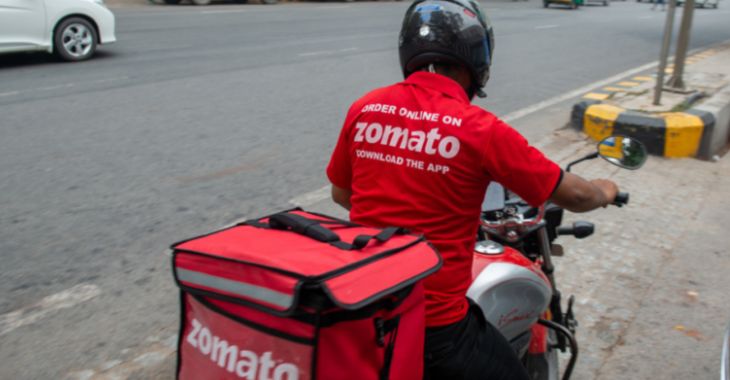Zomato has reinstated two former senior executives, Rahul Ganjoo and Pradyot Ghate, who left the company last year. The pair has been tasked with incubating new ideas for Zomato’s going-out business, a segment that could potentially integrate Paytm’s movie ticketing and events business if ongoing deal negotiations between the two Indian unicorns materialize.
Sources confirmed the return of Ganjoo, previously head of new businesses and CEO of food delivery, and Ghate, who served as vice-president before their departures in January 2023 and July 2023, respectively.
“Both of them are pursuing 0-1 ideas in the going-out business… which is closer to dining out, lifestyle, and entertainment than the core food delivery segment. But, things change very quickly in Zomato. There’s no guarantee that what they are working on will eventually be launched,” said a person closely associated with the company.
Zomato’s move to bolster its going-out business aligns with its June announcement of talks to acquire fintech major Paytm’s movie ticketing and events arm, a deal potentially valued between Rs 1,500 crore and Rs 2,000 crore. This vertical facilitates discovery and ticketing for offline experiences, such as in-restaurant dining and live events, including Zomaland. In Q4 FY24, the segment saw a 207% year-on-year growth in gross order value, reaching Rs 1,069 crore, while adjusted revenue doubled to Rs 93 crore, despite a decline in profitability.
Experts suggest that the acquisition could significantly enhance Zomato’s presence in the movie ticketing and events market through an integrated loyalty program, cross-selling food offerings, and improved entertainment discovery for users.
The high-growth phase of food delivery is reportedly plateauing, prompting both Zomato and Swiggy to invest heavily in the quick commerce sector. A strong focus on the going-out business could drive long-term revenue growth for Zomato.
Company Culture and Leadership Changes
Zomato’s founder and CEO Deepinder Goyal commented on the company’s evolving leadership and culture: “Company building is not just about the journey of the business. It is also so much about its people’s personal journeys. Both these journeys take their own twists and turns. And sometimes, for some people, the distance between their form (their mindset and skill set) and the company’s context becomes such that it is necessary to take a break from each other.”
He added, “I attempt to stay true to a culture where I expect every individual, including me, to continuously learn and grow, improve upon their form, and adapt to the changing context. Also, without hope, but not hopelessly, I think that most of our people who have exited haven’t really left. People leave their roles at Zomato, but Zomato never leaves them.”
Goyal highlighted that several senior leaders are now in their second or third stints at the company, noting, “They did that once the company’s context changed, or when they changed their form. Sometimes, both. All of this works for us wonderfully. The entropy our people create in the organization by leaving and then coming back is fantastic, to say the least, and propels the organization forward.”
Some former Zomato executives have since launched their ventures. Mohit Gupta, once a co-founder at Zomato, started the omnichannel lifestyle brand Lyskraft, raising $26 million in a seed round led by Peak XV. Gaurav Gupta, another former co-founder, founded healthtech startup Gabit, securing $9.5 million in seed funding from Norwest Venture Partners and angel investors, including Amazon senior vice-president Amit Agarwal and Zomato’s Deepinder Goyal.











